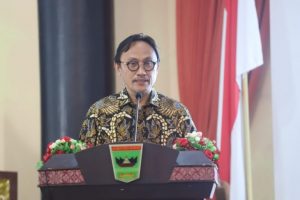Northwest China’s Ningxia Hui Autonomous Region is showing its ambition ahead of Sunday’s China-Arab States Expo, to build itself into a global halal food center.
“Favorable business policies and the good environment of our park can attract halal food enterprises from home and abroad, and promote the halal food industry of China at the same time,” said Zhao Yongqing, Party chief of Wuzhong City.
The city now has 176 halal food enterprises. Halal output of the city totaled 13.2 billion yuan (2.16 billion U.S. dollars) last year, up 15 percent year on year, and accounted for more than 60 percent of the whole value of the region’s halal industry.
Covering an area of 63 square km, the park has over 40 enterprises to date with an annual production value of 3.6 billion yuan. Well-known enterprises, such as Ningxia Hongshanhe Food Co., Ltd., Yili (Ningxia), and Baodi Halal Food Company, have played great roles in the development of domestic halal food industry.
“Our goal is not only the domestic market, but markets in the Arab states. Thus, we need to organize a chain of cultivation, slaughter and processing, to ensure the integrity of material source, so that we can expand our business to the world,” said Gu Jianqing, manager of Baodi.
Gu said his company plans to cultivate three million chicken annually, and slaughter three million lamb and 80,000 cattle every year.
“We are very positive about the platform that Ningxia has provided for us. It will offer us a lot of convenience in exports once the support facilities are completed,” said Gu, adding that he hopes to sell 40 percent of their halal products in the international markets.
Besides Wuzhong, the capital city of Ningxia, Yinchuan, is also striving to develop the halal industry. By the end of 2012, Yinchuan had more than 4,800 halal food enterprises and other processing or selling enterprises. Some have showcased their products outside China and at exhibitions in Cairo, Dubai and Istanbul.
With about 22 million Muslim population, China has rich resources, such as mosques, halal food and Muslim culture.
Since the first halal authentication center was established in Ningxia in 2008, more than 50 domestic halal food enterprises have passed the authentication. China has signed halal food standards with seven countries, including Saudi Arabia, Egypt, Qatar and Malaysia, supporting an increasing number of halal products accepted by other countries.
To tap in the international halal food market, Ningxia is perfecting the authentication system, so that domestic standards can meet the standards of Arab countries and other Muslim regions.
Moustapha Saphariny, former Palestinian ambassador to China, said the halal authentication is a unique advantage for Ningxia as compared with other regions in China.
With all those conditions and advantages, Saphariny said, Ningxia, the city of Wuzhong in particular, has the great potential to become the “world’s factory” for halal food.




